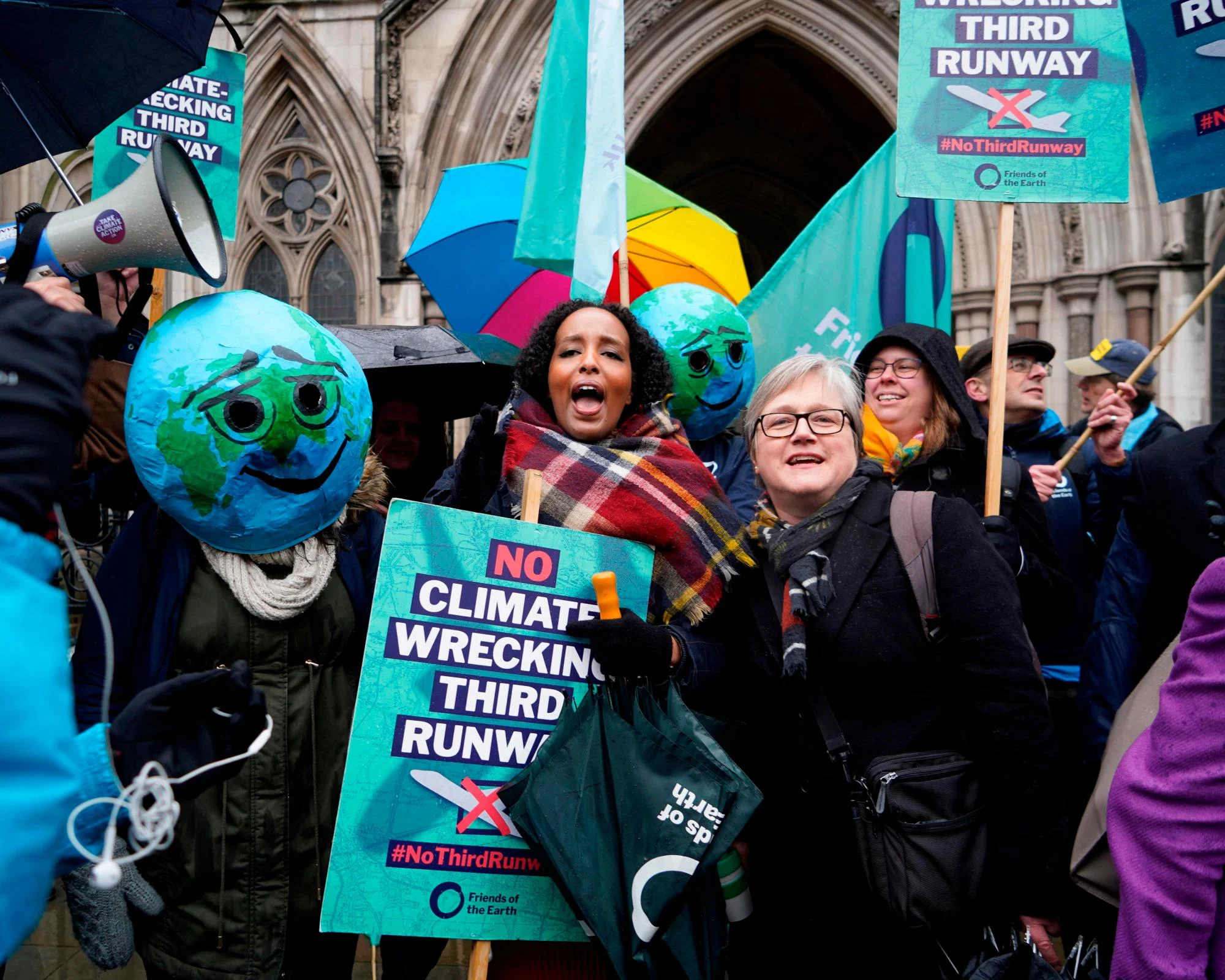By Helena Horton And Heather Stewart
Copyright yahoo

Keir Starmer has tasked a Conservative peer with writing a new planning bill to remove the ability for environmental groups to delay projects such as Heathrow’s third runway with judicial reviews.
The Guardian understands that leaving the Aarhus convention is being discussed as an option. This is an international treaty signed up to by the EU and other countries in Europe, which protects the right for campaigners to bring legal claims against large infrastructure projects such as waste plants, nuclear power stations and motorways.
Doing this would “destabilise Britain’s constitution” and silence legitimate objections, leading planning lawyers have warned.
The chancellor, Rachel Reeves, has put Heathrow expansion at the heart of her push for economic growth, claiming it would make the UK “the world’s best-connected place to do business”. The Treasury sees the new bill – including blocking what one source close to Reeves called “stupid” judicial review cases for nationally significant infrastructure projects – as essential to ensuring work can start on a new runway before the next general election.
Reeves has repeatedly complained that the protection of “bats and newts” has interfered with the UK’s ability to complete major infrastructure projects. She has also insisted that pursuing economic growth must trump Labour’s net zero commitments, saying “growth underpins everything else”.
Starmer and Reeves earlier this year introduced a planning bill to parliament that would override EU-derived environmental protections and put important wildlife sites at risk of development. After campaigns by activists and MPs, the government added amendments that gave some extra protections for nature. But ministers still believe deregulation has not gone far enough.
Charles Banner KC has been asked by the prime minister to find a way to remove the cap on costs for groups bringing a judicial review. He has previously worked on human rights cases with Starmer, and is considered an expert on judicial reviews. He has worked on cases involving Heathrow and Stansted airports, as well as Thames Water’s Abingdon reservoir.
The Aarhus convention, signed in 1998, enshrines the right for citizens to challenge environmental decisions and defend their right to a healthy environment, including by capping the legal costs a losing claimant can be forced to pay. Individual claimants only have to pay £5,000, while groups such as Friends of the Earth have to pay £10,000.
Lord Banner, who was made a peer by the then prime minister, Rishi Sunak, last year, has said it would be impossible to remove these cost caps without leaving Aarhus. He wrote in a review that: “For so long as the UK remains a member of the Aarhus convention, there is no case for amending the rules in relation to cost caps in order to reduce the number of challenges to nationally significant infrastructure projects.” The provisions ministers want to include in the bill would make leaving Aarhus a requirement, as they would contravene the convention.
The new bill aims to speed up large projects, particularly Heathrow. The airport has submitted a timeline to the government claiming it could begin building the controversial third runway by the next general election if there are no judicial reviews.
Thinktanks and lobbyists have also put pressure on the government to stop these decisions being subject to the convention.
Britain Remade, a pro-growth thinktank that is close to No 10, has been campaigning for the convention to be looked at again.
Sam Dumitriu, its head of policy, recently wrote on his blog that the government could “scrap the [cost] caps altogether and treat environmental lawsuits like any other”. The centre-right thinktank Onward this week published a paper including a recommendation to bring primary legislation to remove the cost caps under the Aarhus convention.
Banner confirmed to the Guardian that he is working on the planning changes, but declined to comment further.
Alexa Culver, a leading planning lawyer, warned against weakening rights to bring legal cases against projects such as Heathrow. She said: “Judicial review is an essential protection against government overreach. It ensures that authorities’ decisions are made rationally, within legal powers and with fairness and proper procedure. Dismantling these protections to usher in unlawful and harmful development, for example, or to silence particular sections of the public, will distort the constitutional balance of power and fundamentally undermine public trust.
“An alternative to destabilising our constitution would be delivering lawful infrastructure projects which demonstrate an obvious, clear, engaging vision, purpose and use case. Any judicial review claims brought that are totally without merit should be thrown out, as they currently are.”
Niall Toru, a senior lawyer at Friends of the Earth, said: “The government is trying to have it both ways – promising that airport runways will only be approved if they meet strict legal obligations on climate and air quality, while simultaneously working behind closed doors to gag those who could hold them accountable to those promises. Instead of silencing opposition by leaving a vital treaty that enables judicial scrutiny, the government should focus on developing infrastructure that communities actually want and need.”
A Heathrow spokesperson said: “We have submitted a proposal that will deliver the UK’s gateway to growth in line with the government’s timing if the right policy framework, including on planning reform, is put in place by ministers.”
A government spokesperson said: “We are legislating in the planning and infrastructure bill to prevent meritless claims against nationally significant infrastructure projects from being dragged through numerous appeals in the court, ensuring there can only be one attempt at legal challenge if the court considers a case to be totally without merit. We are also working with the judiciary to ensure challenges against these major infrastructure projects are dealt with more quickly and efficiently, and will keep the process under review.”



